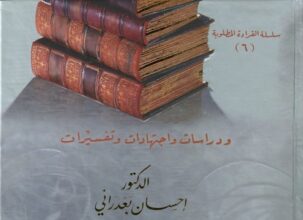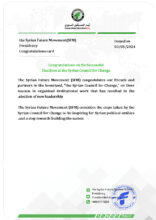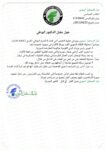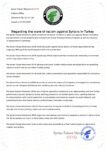The Syrian Ministry of Defense: Between Reality and Aspirations

Introduction:
The Ministry of Defense in Syria was established in 1920 during the period of the French Mandate over the country. This period was rife with political and military challenges, as Syria was under French control following the collapse of the Ottoman Empire. The French shaped the country’s institutions in a European style.
The Circumstances Surrounding the Establishment of the Ministry of Defense:
After World War I, Syria was placed under the French Mandate as per the Sykes-Picot Agreement. France was tasked with establishing a local army to defend the modern Syrian Republic but aimed to build a military institution loyal to it. France began forming the Syrian Armed Forces through the “Army of the Levant,” which consisted of Moroccan, French, and African personnel. Later, the “Special Troops of the Levant” were created, comprising local recruits, becoming the nucleus of the modern Syrian army.
Syria faced numerous internal challenges, including revolts and unrest. The Special Troops of the Levant were responsible for maintaining order and suppressing uprisings within cities, thus strengthening French control over the country.
Historical Roles:
The trajectory of Syria’s Ministers of Defense can be divided into time periods based on the role and status of the Ministry of Defense during these times:
First: The French Mandate Period (1920–1946):
- Abdul Hamid Pasha Al-Qaltaqji (1920)
- Prince Yusuf Al-Azma (1920)
- Jamil Al-Alshi (1920)
- Shukri Al-Quwatli (1936–1938)
- Jamil Mardam Bey (1938–1939)
- Mazhar Raslan (1939)
- Nasouhi Al-Bukhari (1939)
- Abdul Ghafar Al-Atrash (1941–1942)
- Hassan Al-Atrash (1942–1943)
- Ata Al-Ayoubi (1943)
- Nasouhi Al-Bukhari (1943–1944)
- Jamil Mardam Bey (1944–1945)
- Khalid Al-Azm (1945)
- Saadallah Al-Jabri (1945–1946)
- Nabeh Al-Azma (1946)
- Ahmed Al-Sharabati (1946–1948)
Second: The Post-Independence Period (1946–1963):
- Jamil Mardam Bey (1948)
- Khalid Al-Azm (1948–1949)
- Husni Al-Zaim (1949)
- Abdullah Atifa (1949)
- Fawzi Selu (1949)
- Akram Al-Hourani (1949–1950)
- Muhammad Nasser (1951–1953)
- Fawzi Selu (1953–1954)
- Mustafa Hamdoun (1954–1955)
- Abdul Hamid Al-Sarraj (1955–1958)
- Abdul Karim Zahr Al-Din (1958–1961)
- Abdul Karim Al-Nahlawi (1961)
- Muhammad Omran (1961–1963)
Third: The Period After the Ba’ath Revolution on March 8th (1963–Present)
- Hafez Al-Assad (1966–1972)
- Mustafa Tlass (1972–2004)
- Hassan Turkmani (2004–2009)
- Ali Habib (2009–2011)
- Dawood Rajha (2011–2012)
- Fahd Jassem Al-Freij (2012–2018)
- Ali Abdullah Ayyoub (2018–2022)
- Ali Mahmoud Abbas (2022–Until Liberation)
- Marhaf Abu Qusra (2024)
These divisions help in understanding the development of the Syrian Ministry of Defense and the role of each minister in strengthening the army’s capabilities and organization.
The role of the Syrian Ministry of Defense before the Ba’ath Party rule (1920-1963)
The Ministry was responsible for organizing and training the armed forces and operated under the supervision of French officers. After independence from France in 1946, the Ministry of Defense played a vital role in strengthening national sovereignty by building a strong and independent national army. The Ministry was part of the Syrian government and contributed to formulating defense and security policies.
Syria witnessed several military coups between 1949 and 1963, and the Ministry of Defense had a central role in these events. For example, during the 1949 coup led by Hosni al-Zaim and the 1951 coup by Adib al-Shishakli, the military was a key instrument in changing the government.
In the political field, after independence, the Ministry of Defense focused on building a strong national army. The compulsory military service law was issued in 1947 to enhance the army’s capabilities and expand its manpower. The Ministry worked on modernizing the military by purchasing modern military equipment and developing advanced training programs. The ground, air, and naval forces were strengthened to be capable of defending the country.
The Syrian Armed Forces participated in the 1948 Arab-Israeli war, playing an important role in defending Palestinian territories.
In the social field, the compulsory military service law helped integrate various segments of Syrian society into the army, reinforcing national unity and a sense of belonging. The Ministry of Defense established military schools and training institutes to prepare officers and soldiers, contributing to raising military and educational efficiency. The army also played a significant social role in Syrian society, as military service was seen as a national duty and great honor.
The Syrian Ministry of Defense played a pivotal role in shaping the country’s history before the rule of the Arab Socialist Ba’ath Party. Through building a strong national army, participating in regional conflicts, and promoting national unity, the Ministry was an integral part of Syria’s political, military, and social development.
The Ministry of Defense after the Ba’ath Party’s takeover:
Hafez al-Assad extensively used the Ministry of Defense to strengthen his power and control over the Syrian state, through:
- Control over the military, through:
- A. Strategic appointments: After assuming the position of Minister of Defense in 1966, Hafez al-Assad began appointing officers loyal to him to leadership positions within the military, which helped him build a network of personal loyalties within the armed forces.
- B. Eliminating political and military rivals, such as Salah Jadid and Nur ad-Din al-Atassi, through their arrest or exile, which allowed him to gain complete control over the military.
- Control over the security apparatus, through:
- A. Creating parallel security agencies, such as the “Defense Brigades” led by his brother Rifaat al-Assad, which served as a striking force to protect the regime and suppress any internal opposition.
- B. He used the security agencies to monitor officers and soldiers, ensuring their complete loyalty to him, as any suspicion of disloyalty was met with strict measures such as arrest or execution.
- Manipulating sectarianism, through:
- A. Enhancing sectarianism: Assad exploited sectarian divisions to strengthen his authority, relying heavily on Alawite officers in sensitive positions, which ensured strong loyalty within the army.
- B. He weakened the opposition by manipulating other sects, making it difficult for any group to organize a coup against him.
- Control over the party, through:
- A. Restructuring the Ba’ath Party after the 1970 coup to bring it under his full control. This included appointing loyalists to leadership positions within the party, which allowed him to control political and military decisions.
- B. Assad removed all rivals within the party, making him the undisputed leader with no competition for power.
- Promoting personal loyalty, through:
- A. Loyalty to Assad, where personal loyalty to him and his family became a key criterion for promotions and positions within the army and security agencies, creating a culture of personal loyalty to Assad rather than loyalty to institutions or the state.
Through these strategies, Hafez al-Assad was able to domesticate the Ministry of Defense and exploit it to enhance his personal power, making him the undisputed leader of Syria for decades. These policies contributed to the creation of a strong autocratic regime relying on personal loyalty and sectarianism to ensure its continuity.
As for determining the percentage of Syria’s Ministry of Defense budget from the general budget since Hafez al-Assad took power in 1970 until the fall of Bashar al-Assad in December 2024, this requires a thorough review of financial data over the decades, which is not currently available due to the regime’s secrecy regarding that percentage.
However, some general points can be noted:
During Hafez al-Assad’s era (1970-2000), the defense budget constituted a large part of government spending due to regional tensions and conflicts with Israel, as well as the need to maintain the stability of his rule. After the Hama events, the situation had completely stabilized under Hafez al-Assad’s rule, with an authoritarian regime and a strong security grip. Following the strategic wars with Israel and the promotion of slogans like “steadfastness and confrontation” and then “strategic balance,” the defense budget in Syria reportedly reached 85% of the country’s total budget according to media reports. This percentage continued during Bashar al-Assad’s rule, with large resources allocated to the military and security services to confront armed opposition and terrorist groups, in addition to military support from allies like Russia and Iran. Despite this high percentage, the military forces were in poor condition, with outdated equipment, clearly reflecting a case of embezzlement of Syrians’ money under the pretext of armament.
This was confirmed by a report from the Saudi newspaper Elaph, which cited inputs from the British intelligence agency MI6, stating that the Assad family’s wealth amounted to 200 tons of gold, 16 billion dollars, and 5 billion euros. The report claimed that this amount equaled Syria’s entire budget for seven years when compared to data up to 2023. It described this situation as turning the Ministry of Defense into a “black hole” for Syria’s budget, where the Assad family could absorb it without accountability. Additionally, the ministry’s corruption was exploited to make the military forces subordinate to the president’s whims, rather than being protectors of the people, as seen during the years of the revolution since 2011.
What is hoped for after liberation:
The liberation phase is always a time of radical change to the reality, and the Ministry of Defense, in this context, is a key pillar, as its role has been instrumental in shaping both the political and social system in Syria. Therefore, it is hoped that the Syrian Ministry of Defense will become a modern and national institution after the fall of the Assad regime, by learning from previous experiences and adopting a series of fundamental reforms. The most important of these are:
- Restructuring the Ministry to ensure efficiency and integrity, free from personal and sectarian loyalties, while integrating various armed factions within the military structure to ensure unified leadership and control.
- Enhancing transparency and accountability by establishing effective monitoring mechanisms to oversee the army’s performance and ensure that power is not abused. This includes holding all military officials accountable for corruption or human rights violations.
- Developing modern training programs for soldiers and officers, incorporating advanced military technology and modern combat techniques. This should focus on cooperation with developed countries in the military field for experience exchange and training.
- Strengthening national loyalty by promoting values of loyalty to the homeland over personal or sectarian allegiances through educational and cultural programs, and encouraging social integration among Syria’s various sects and communities to ensure national unity.
- Developing military industries through investment in research and development to produce locally manufactured military equipment that meets the army’s needs, while encouraging collaboration with the private sector to advance local military industries.
- Promoting human rights by training soldiers and officers to respect human rights and international laws, and establishing special units to handle humanitarian issues and ensure the protection of civilians in conflict zones.
- Strategic planning and long-term strategy formulation for developing the army and enhancing its defensive capabilities, adapting to new security challenges such as terrorism and organized crime, and creating effective strategies to address these threats.
We believe that adopting these steps will enable the Syrian Ministry of Defense to transform into a national, civilized institution that contributes to building a strong and stable state. It will ensure that the army works to serve the people and protect the homeland, rather than serving individual or sectarian interests. We have outlined a comprehensive vision in the “SFM Papers,” which are published on our official website, particularly in Paper (42) titled “The Syrian Future Movement, Military and Security Institutions, and the Intelligence Services.” In this paper, we emphasized the need to reject the involvement of the Syrian army outside national borders, whether in colonial forms like the military guardianship over Lebanon during Assad’s time, or through mercenary groups, as seen in the sending of national army units to Libya and Azerbaijan. We also stressed the necessity of connecting the army with official regional organizations, especially the Arab League.
At the Syrian Future Movement, we believe that adopting these steps will enable the Syrian Ministry of Defense to evolve into a national, civilized institution that contributes to building a strong and stable state, ensuring that the army works to serve the people and protect the homeland, rather than serving personal or sectarian interests.
Conclusion:
Reforming the Syrian Ministry of Defense to align with the standards of advanced countries is not just a step towards modernizing the military institution, but an essential necessity to ensure the future stability and security of the country. Achieving this goal requires adopting a comprehensive approach that includes restructuring the army, enhancing transparency and accountability, and developing defense capabilities in line with modern technological advancements. Furthermore, these reforms must be part of a broader national vision aimed at building a national army that represents all components of the Syrian people and works to protect the sovereignty and independence of the country.
Through these steps, a new Syria can build a strong and effective defense institution that contributes to achieving peace in the region and the broader area, and becomes part of sustainable development.
Through our role in the Research and Studies Department of the Political Bureau of the Syrian Future Movement, in terms of intellectual and theoretical theorization to positively and sustainably empower the Ministry of Defense in Syria, and assisting decision-makers in organizing new paths and approaches, we recommend the following:
- Restructuring the Army: Unifying all armed factions in the north, east, and south under the umbrella of the Ministry of Defense to ensure the creation of an inclusive national army. This requires fostering trust between all parties, integrating experienced individuals (from the old army) to ensure a smooth transition, and preventing any minority, sect, group, or individual from dominating this central ministry. Special attention should be given to distributing army enlistment according to the percentage of Syria’s components and sects to ensure complete national state-building.
- Drafting a New Constitution: Reflecting the diversity of the Syrian people and ensuring the rights of all citizens, to build an army that represents the aspirations of the people, free from previous ideologies. Enlistment should be voluntary, with no compulsory military service.
- Reforming Military Doctrine: Shifting from a sectarian army loyal to an individual to a national army loyal to its country. This can be achieved by eliminating previous ideological influence and reassessing relations with foreign powers such as Russia and Iran.
- Achieving Regional Balance: Addressing concerns about foreign interventions and ensuring they do not affect Syrian sovereignty. This includes handling foreign military bases in the region, particularly Turkish and American bases.
- Developing Defense Capabilities: Investing in training and technology to enhance the army’s defense capabilities and ensure its readiness to face future challenges.
- Applying Transparency and Accountability Standards: Ensuring integrity and effectiveness in the performance of the Ministry of Defense through effective oversight.
- Reevaluating Military Promotions: Reviewing the military promotions carried out by the Ministry of Defense during the revolution, especially those made for reasons hostile to the people. It is essential to promote defected officers and non-commissioned officers as a recognition of their stand against the regime’s arrogance and their refusal to participate in killing their people. This includes retirees whose retirement was due to the revolution or their sect. They should be granted symbolic ranks befitting their national status.
Therefore, we believe that these steps require internal consensus and strong political will to ensure their success and achieve stability in Syria. We recommend that these recommendations be discussed in research centers and media outlets for further development and benefit.
Political Office
Research Team
Research and Studies Department
Studies
Syrian Future Movement
References:
- المهمة الصعبة.. كيف ستبني سوريا جيشها الجديد؟ | سكاي نيوز عربية.
- سوريا: حل الفصائل المسلحة ودمجها في وزارة الدفاع قرار صائب رغم صعوبات.
- سوريا: اتفاق على حل جميع الفصائل ودمجها تحت مظلة وزارة الدفاع.
- سقوط الأسد: الانتصار الخاطف وتعقيدات النهوض | مركز الجزيرة للدراسات.
- من صلاح جديد إلى مروان حديد.. هكذا تخلص حافظ الأسد من خصومه.
- قصة اللجنة العسكرية لحزب البعث التي حكمت سورية 1963 الى1970.
- التاريخ السياسي للعلويين قبل حكم “البعث” | مجلة المجلة.
- تأريخ تأسيس الــقـــوات الــمـــســـلـــحـــة الــســــــورية | Arab ….
- خلود الزغير، “الجيش والسياسة في سورية (من 1946 إلى 1963) التحالفات.
- تيار المستقبل السوري والمؤسسات العسكرية والشُرطية وجهاز الأمن والمخابرات






